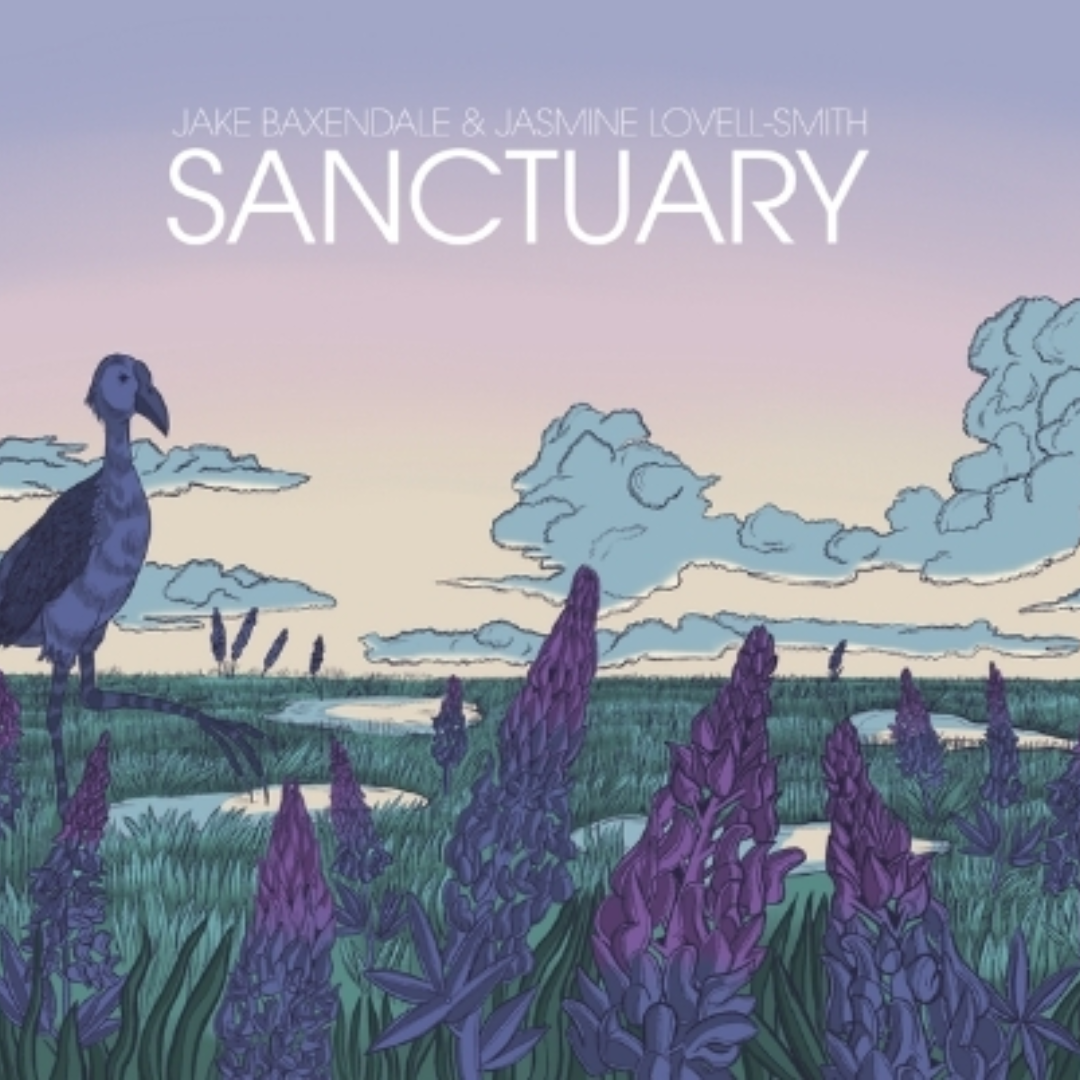SOUNZ talked with Jake Baxendale & Jasmine Lovell-Smith on their new album 'Sanctuary.' The new Jazz album will be released on Saturday 12th June at the release concert at Wellington City Gallery Auditorium.
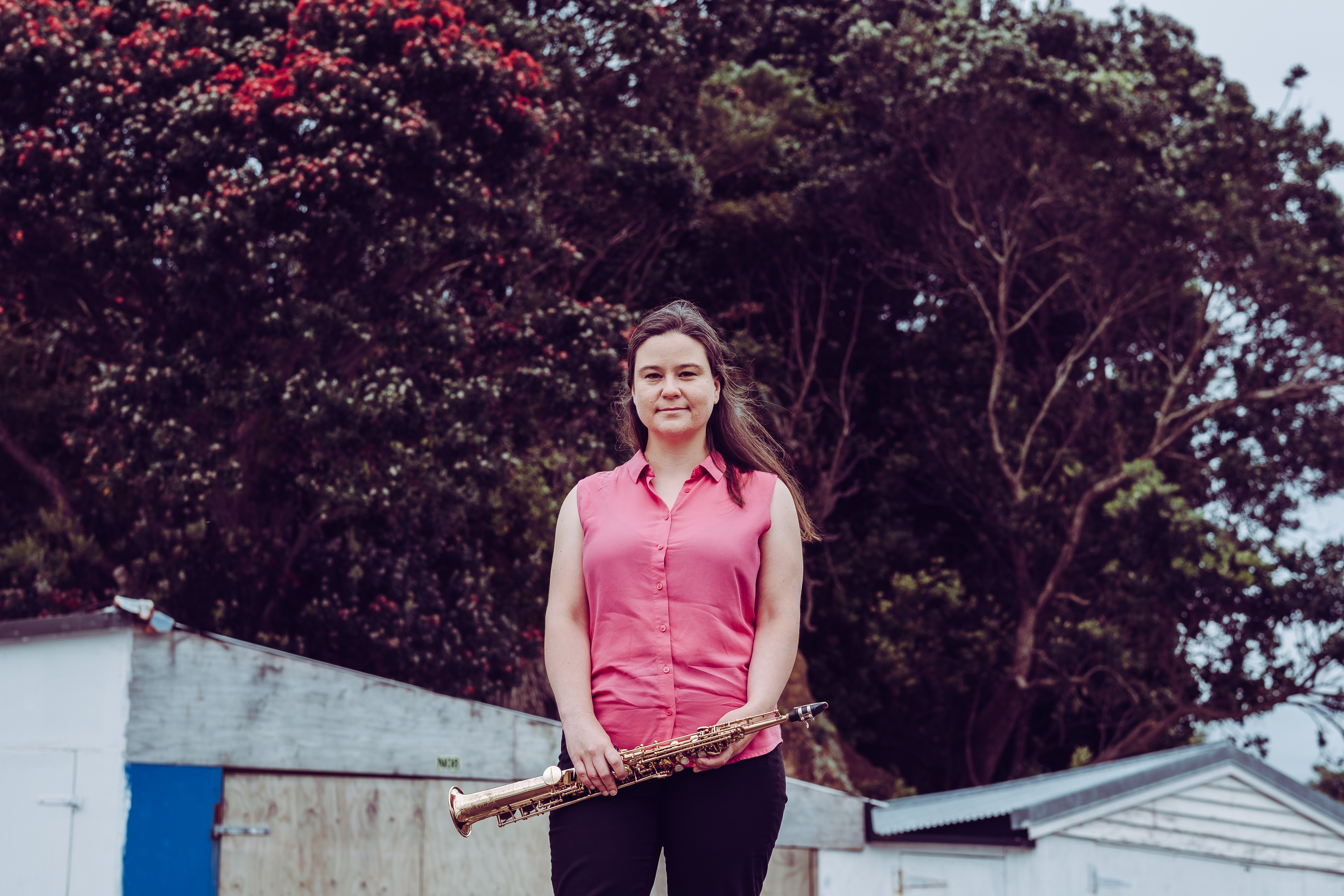
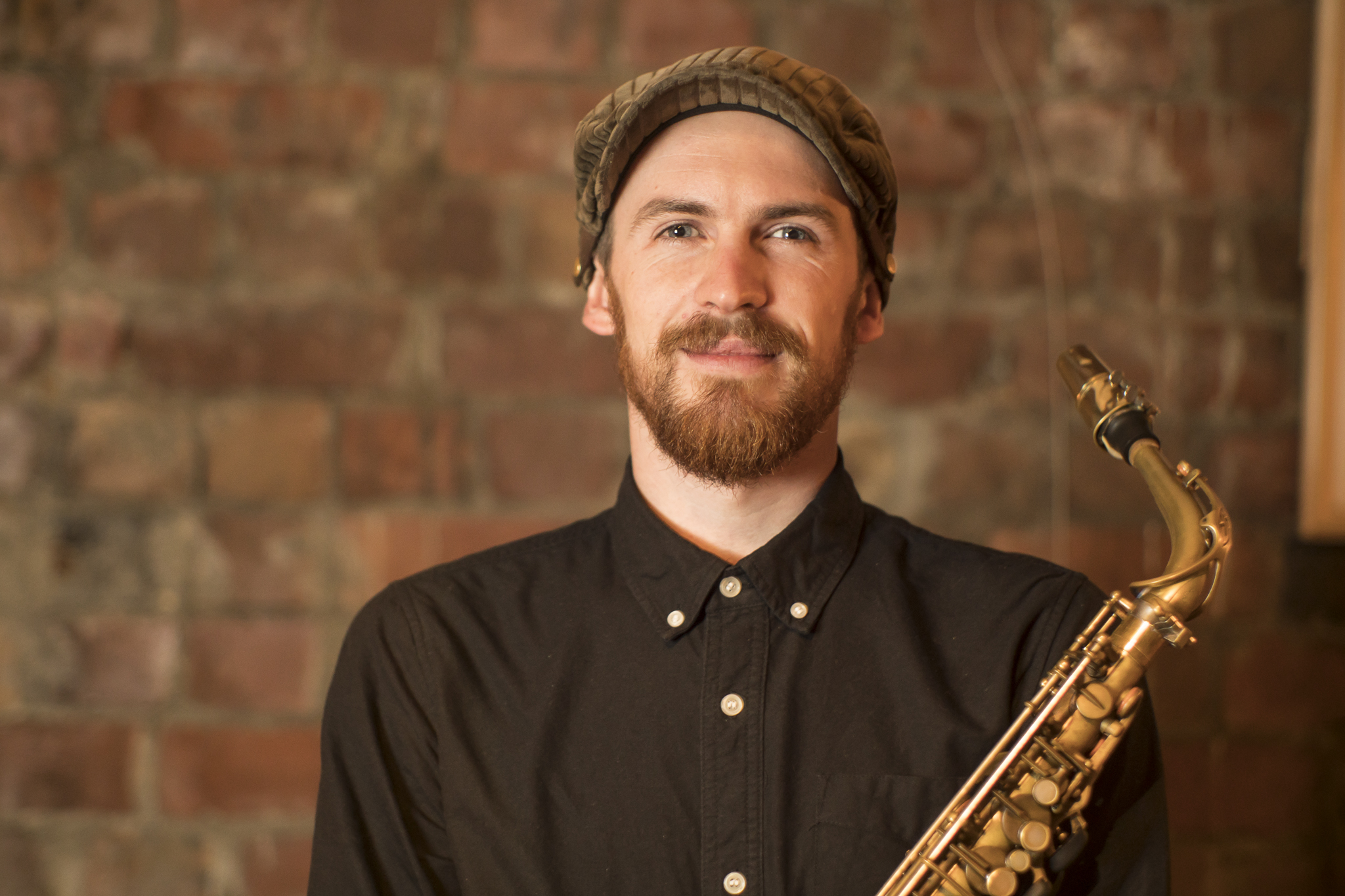
Photo credit - Hayden Hockly
You are two very strong jazz composers, how did you find collaborating on this album?
Jake: One of the best parts, for me, has been writing music with Jasmine (as well as the other musicians) in mind. This music was written for Jasmine to play, and so it sounds right–just listen to her on “Leaves of Grass” (or for another example, Al Campbells’ solo on “I Sing the Body Electric) sometimes you just need the right person for the job! I hope I did my parts justice as well, haha...
I think we’re quite complimentary, certainly Jasmine makes up for a lot of my deficiencies. She’s much more detail oriented towards the end of a project, whereas I get less interested once everything is put into motion. That’s really helped putting the whole thing together.
Jasmine: It has been great because I think we have different and complementary strengths. Before collaborating on the album itself we collaborated on leading this band as part of the Arthur Street Loft Orchestra series over the last three years, so that gave us a good foundation in terms of knowing how to work together and getting more deeply familiar with each other’s writing and playing.
How do your different instruments complement each other when composing?
Jake: I really wanted to be able to make use of highs and lows, range wise. The soprano sax and flute aren’t typical “big band” instruments, and neither are bass clarinets. This really helped us write more contrapuntally, I think, because the textures and the ranges were quite spread out. At the same time, the band achieves really beautiful blends in the more homophonous sections.
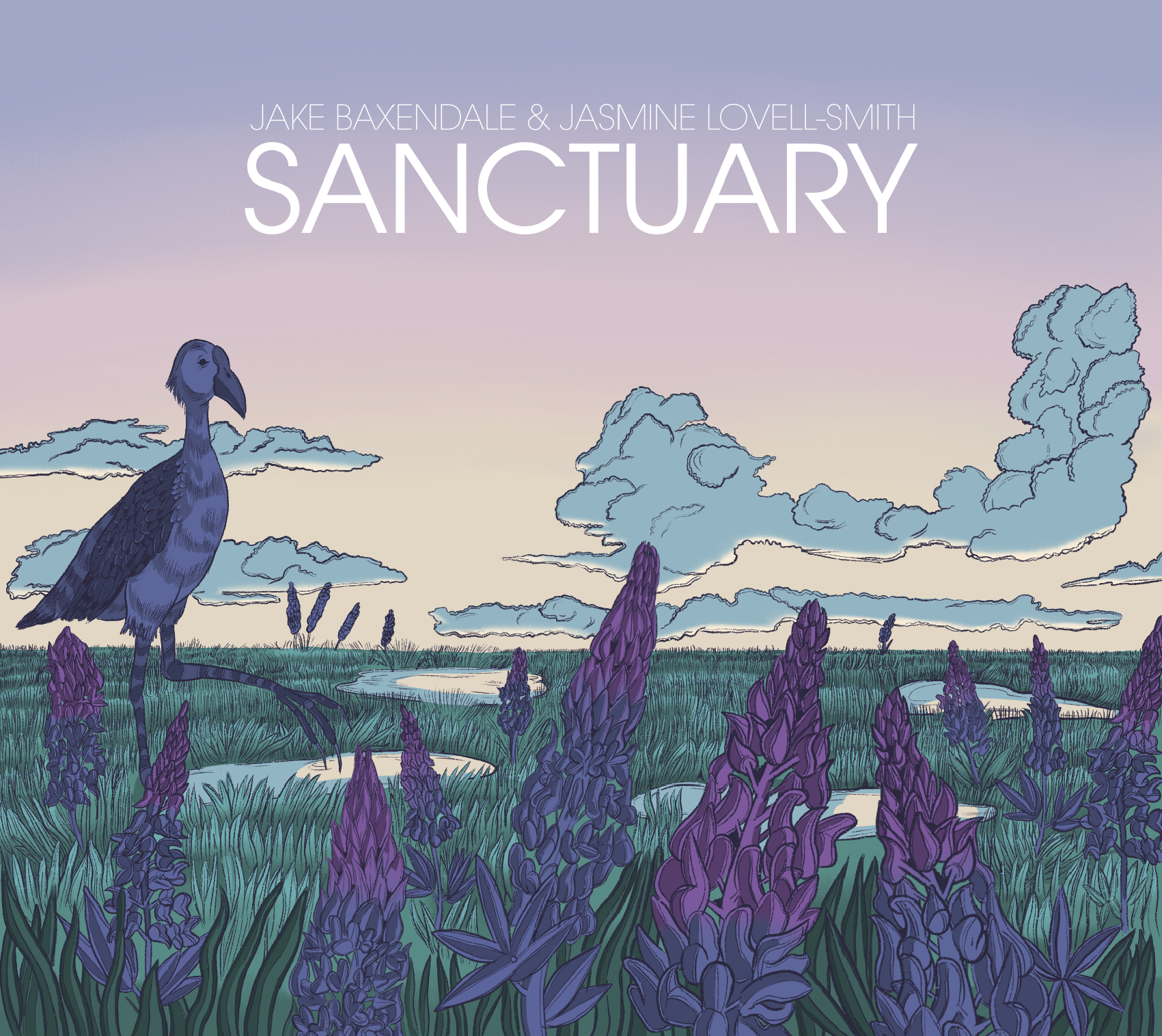
Jasmine: Well, since we are both saxophonists (although I play soprano and Jake plays alto) there are a lot of similarities. We are both quite melodically oriented as composers (which I would say is common for saxophone players) but we have pretty different sensibilities and approaches as improvisers so that means we can cover a lot of range. When composing for improvisers it is partly a matter of writing for a specific instrument, but almost more of a matter of writing for a specific musical personality, so we definitely draw on each other’s musical personalities as well as those of each of the band members.
Can you tell us about the recording process for this album?
Jake: it happened over two days at the Massey University studio with Thomas Voyce engineering/producing the session and Michael Sutherland assisting. They did a fantastic job. We had the horns, piano and bass in the main studio, with the drums and guitar in a separate booth. This gave us enough wiggle room to make a couple of edits and control a lot of the bleed, but really everything was more or less done live.
Jasmine: We recorded the album at Massey Studios over two days in July 2020. The session was engineered by Thomas Voyce (who also mixed it). It was recorded live (we were all playing at the same time) as we really wanted to get the feeling of spontaneous interaction and interplay amongst the ensemble. It is a big studio, and we had all the horn players in the main room, along with the piano and bass. Drums and guitar were isolated in a separate room, but with good visual communication.
Your new album has seven tracks on it, is there different inspiration behind each of these?
Jasmine: Yes, for sure. A lot of my music is often representative of different facets of my own emotional world. ‘Sanctuary,’ is a suite in three continuous movements that describes my experience of moving back to New Zealand to do my doctorate after a number of years overseas. The title ‘sanctuary’ is about cultivating an internal sense of groundedness and calm in the midst of big life challenges like moving overseas or doctoral study. The three movements represent different parts of that process: firstly ‘Optimism,’ deals with the exciting feeling of new beginnings. ‘Strangely Familiar,’ is heavier emotionally and evokes the experience of feeling overwhelmed (probably a common experience for doctorate students!). And ‘Inevitable’ is about developing the steely resolve and determination to push through difficult things.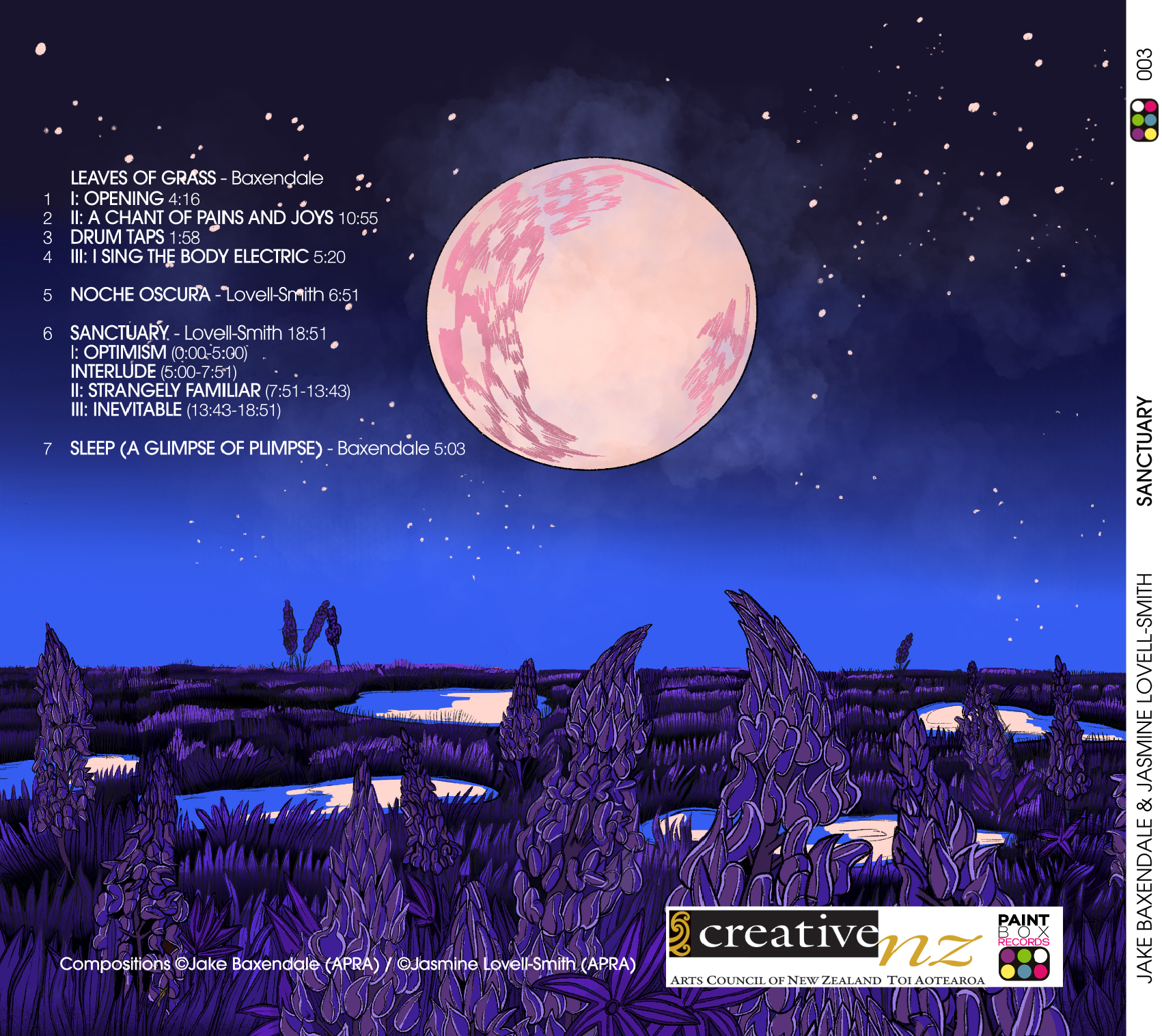
Jake: A couple of years ago, I wanted to write some new music and suggested to Jasmine we do a performance at the Wellington Jazz Festival, with a suite of new music each. So really the initial motivation was “write to this deadline!” However, once I got into writing I found I needed some inspiration. I’d named a short piece we were already playing “Leaves of Grass” after the anthology of poems by Walt Whitman. I just thought it sounded vaugely pastoral, a bit uplifting, kind of evocative of that vibe...I decided to use that short melody as the basis for the rest of the suite, and picked up my copy of the book to mine for ideas. The titles of the other movements, “A Chant of Pains and Joys” and “I Sing the Body Electric” are drawn from the text. The arc of “Chant” tries to capture a bit of the process of dealing with death and grief: there’s both pain and joy in remembering loved ones passed. Body Electric is a great poem celebrating the human form, people’s bodies. It’s fun! I wanted to reflect that, and maybe write something that people could move to. I think of all three movements as being very “American”, there’s lots of Charles Mingus in there...I think the aspirational ideals of that nation is best represented in the music, and I wanted to pay homage to that, too.
Your album art shows beautiful illustrations of our landscapes here in Aotearoa. Who is the artist behind this and how did you all come up with the theme and inspiration?
Jake: Beautiful, right? Eden Fainberg did the artwork. She’s someone I worked with previously, having done artwork for The Jac’s “A Gathering” and now “Walking Spirits” (out now on Thelonious Records, Bandcamp, Spotify etc). We gave her the title and some ideas – we really wanted something that would evoke the idea of “Sanctuary”. The day-to-night thing was her idea I think. She’s something else! Check her out on Instagram, @fleshydisguise
Jasmine: The artist is Eden Fainberg, a Berlin-based illustrator that Jake has also worked with on previous projects. Our original concept was of a New Zealand landscape scene with a tranquil atmosphere. She came up with the idea of doing multiple versions of the illustration showing the same scene at different times of day, which we loved so we ran with it.
[gallery type="slideshow" ids="7197,7200,7199,7198"]
Do you have anything coming up that the SOUNZ audience should know about?
We are excited to be launching our album with a live performance as part of the Wellington Jazz Festival! Our album release will take place on Saturday June 12th at 5:00 pm at the City Gallery. Presale tickets are available now from Eventfina and Under the Radar
What do you hope your audience gains from the listening experience of this album?
I want to suggest a little something and let their imagination take them the rest of the way. When someone comes up to me after the show and says “I really heard such-and-such”, bird song or protest or whatever, or “I was imagining the film that this could be the score to”, I love that! Once I put it out, it’s theirs, and what they make of it. I hope the album takes them on an emotional journey, and also that it provides a sense of warmth and calm – even though it explores some stormy and dissonant sounds, it is an optimistic album overall!
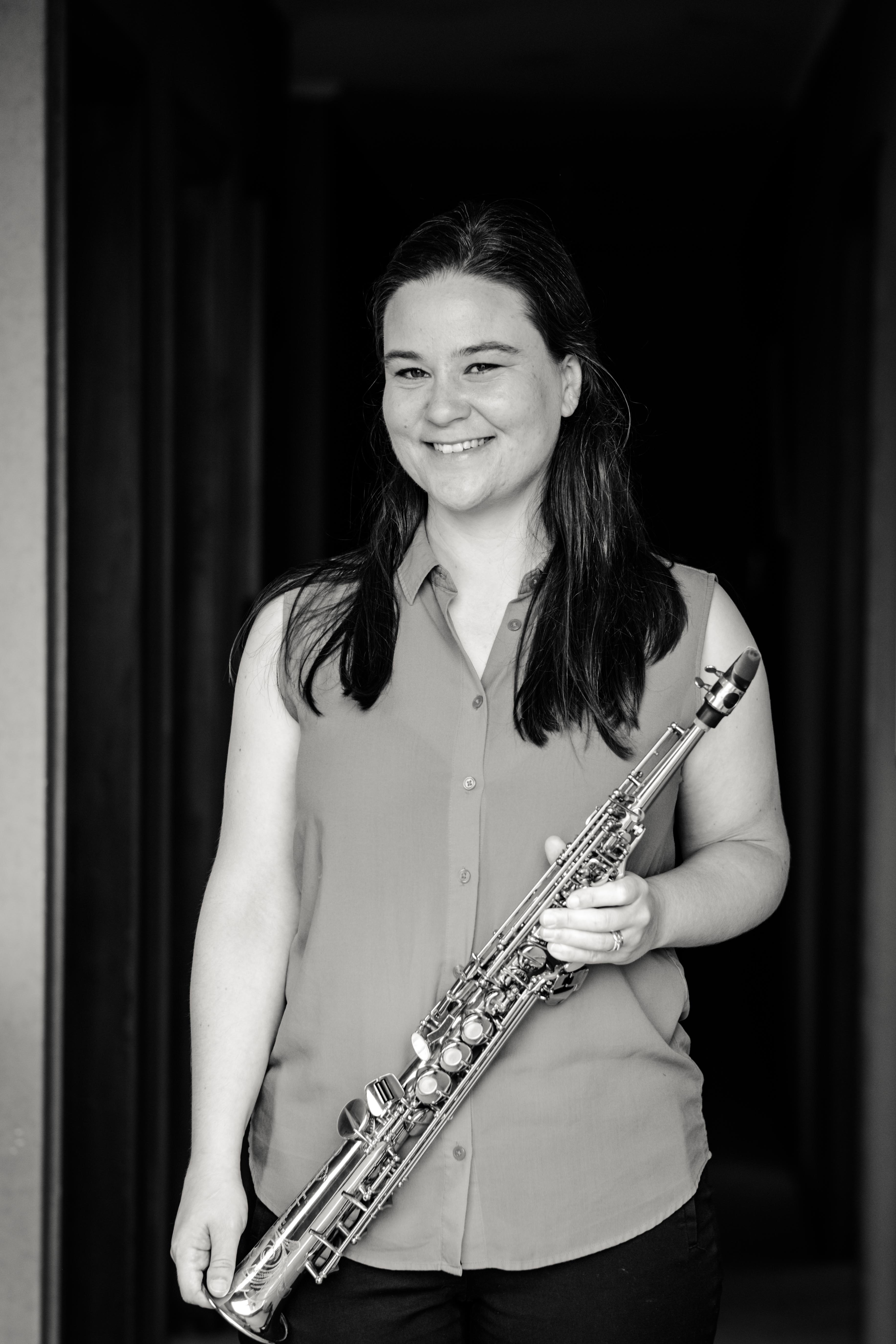
Jasmine, how do you think your time in America and Mexico has influenced your music career? And what did you gain from your time overseas?
Jasmine: I gained a lot from getting to participate in different music scenes overseas – I think that when you put yourself in a new context, it forces you to grow and discover new facets of yourself. Being immersed in the New York jazz scene was really important for my development, both in terms of meeting important collaborators and in terms of developing my skills, my musicianship, and soaking up a lot of great live music. My studies in Connecticut were also horizon-broadening in a totally different way, and then living in Mexico was a huge challenge in that I needed to learn a new language and become fluent in the ways of a different culture, which was a great experience in terms of personal growth and broadening my perspective on the world.
Jake, congratulations on your APRA 2020 Best Jazz Composer award. How has this award influenced your music?
Jake: I quit while I was ahead! Haha... Seriously though, I’ve found it really difficult to write in the last couple of years, especially during and after the COVID lockdowns. I’m concentrating on my improvising at the moment, pursuing a Masters of Music in performance with Roger Manins at the University of Auckland. When I get back into writing, I think my ideas will be very different, much more open. I still love a good melody though, I hope I’ve got a few more in me!
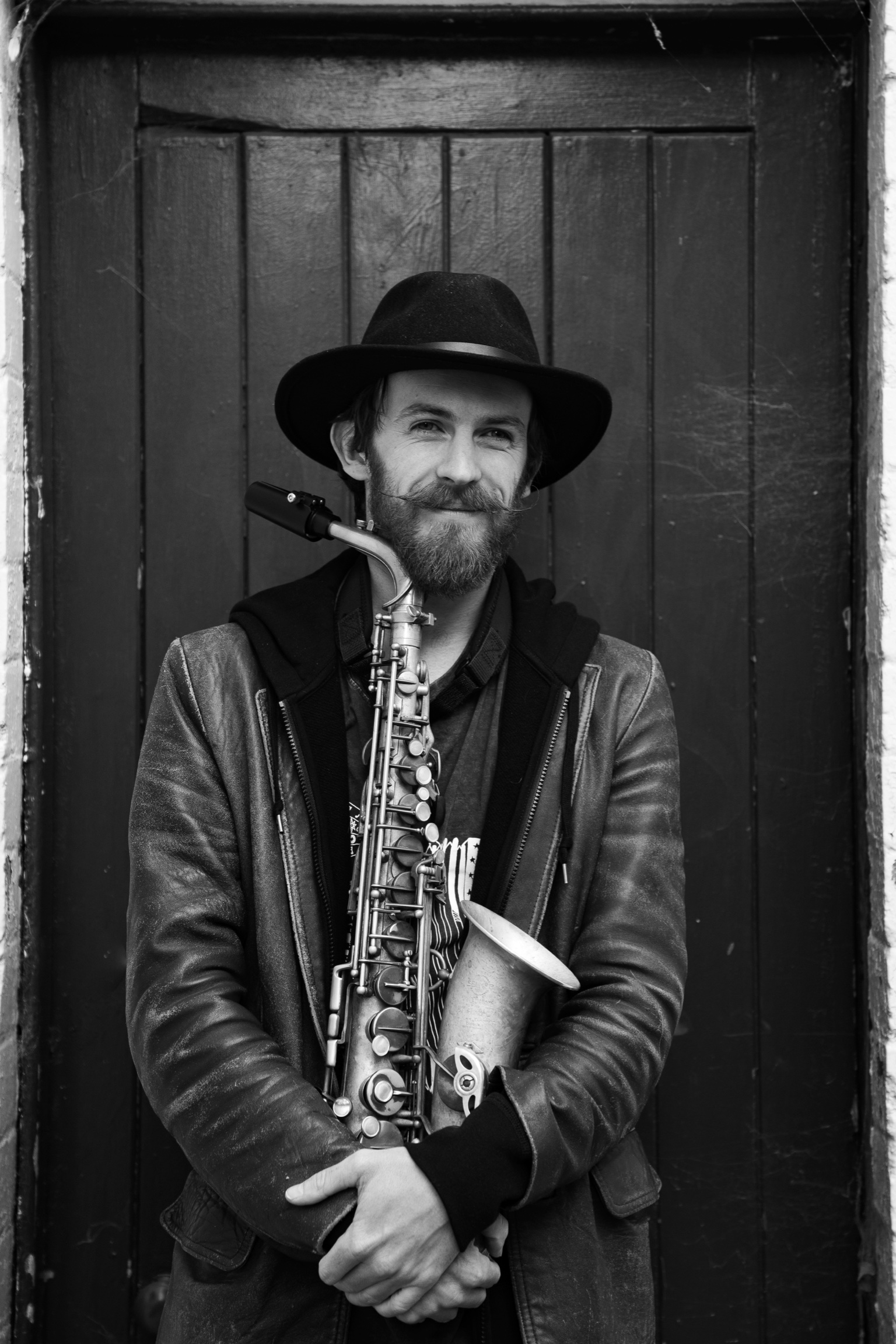
Jake, how has your music been influenced by your time in South Korea?
Jake: Big time! Traditional Korean music is deep, really deep. It’s inspired me to really commit 100% each time I play. I think a lot more about how my sound is embodied, the breath, drawing energy up from the earth, how these sounds are really natural, connected to nature and the natural world, and are also spiritual, connected to others. That’s given me a lot of timbral and rhythmic freedom: I’m less concerned about playing to a grid, or purity of sound. I’m not articulating myself well, but it probably doesn’t matter – it’s not something you can easily talk about. It’s not something you can put into a score easily either! So I just try to play like that as much as I can, and lead by example...that’s probably too egotistical...I just mean that hopefully I’m communicating some of that energy to the other musicians.
Jasmine, how did you find studying at Wesleyan University (Middletown, CT) and completing your Master of Arts in composition?
Jasmine: My time at Wesleyan was really interesting! When I decided to do my Masters degree I didn’t want to focus just on jazz composition, and I ended up going to Wesleyan where I worked with Anthony Braxton and Paula Matthusen, two very different composers both working at the experimental end of the music spectrum. My time at Wesleyan exposed me to a lot of new conceptual ideas and approaches which I still draw from today. I also met my husband there (he is a fellow composer) so that was the best part of it!
Jasmine's Spotify:
